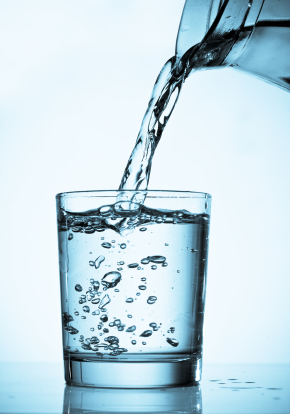This guest post is authored by Carey Hidaka, an IBM worldwide client solutions professional. Carey was the keynote speaker at the 2013 ISA Water/Wastewater Symposium.
Do you think about where your water comes from and if it will be there tomorrow? Do you think about where water goes after you’ve used it and how it’s reused as a part of the earth’s water cycle? Did you know that the amount of fresh water on earth is about the same now as when the dinosaurs walked the planet, and that more and more people are using it now at an ever faster rate?
Clean, fresh water is a basic human need that is rapidly becoming a scarce resource. South Africa even states that access to “sufficient water” is a constitutional right.
Water isn’t just for personal consumption. Seventy percent of the world’s fresh water is used for irrigation, producing about 40 percent of the world’s food. Water also generates the world’s electricity by producing steam, powering turbines, cooling equipment and conveying power generation by-products. Our way of life is inextricably tied to water in many ways.
Population growth stresses our fresh water supplies. According to the United Nations, water use has been growing at more than twice the rate of population growth in the last century.
Unchecked urbanization and industrialization are contaminating the fresh water we have, making the problem even worse. In rapidly industrialized China in 2012, up to 40 percent of the rivers were seriously polluted and 20 percent were so bad that their water quality was rated too toxic for human contact.
And the infrastructure that delivers clean water and collects and treats dirty water is falling apart. The American Society of Civil Engineers in 2009 assigned a report card GPA of D to the U.S. infrastructure, with drinking water and wastewater both achieving grades of D-. This “improved” in a 2013 update to grades of D. The World Health Organization estimates that by 2050 70 percent of the world’s population will live in cities; this will further stress an already fragile infrastructure.
Water is one of the most abundant resources on earth, but usable fresh water only makes up less than 1 percent of the total. Unless we do something differently about how we source clean water and treat wastewater, there won’t be enough fresh water for current and future generations.
Cities don’t have the funding to repair disintegrating infrastructure, install new infrastructure and desalinate to produce enough “new” fresh water to avoid the impending crisis. Traditional engineering solutions alone can’t solve these problems.
The Way Forward Starts With Data
Lots of data is generated when clean water is produced and wastewater is collected and treated. How can we analyze that data and combine it with new data sources like crowd sourcing and social media, to create new insights and make better and timelier decisions about water?
For example, the City of South Bend, Indiana is using data from its wastewater collection system to help eliminate combined sewer overflows that contaminate the St. Joseph River with untreated wastewater. This saves the city from spending millions of dollars in traditional engineering solutions (sewer separation, storage facilities, etc.).
Miami-Dade Parks, Recreation and Opens Spaces is using water meter data to determine where water is leaking and being wasted, reducing water consumption by 20 percent and saving $860,000 per year.
Data doesn’t create more fresh water, but it feeds analysis and decision making about where to source water, when to desalinate, how to stop pollution and what pipes to fix before they break.
What Can We Do?
It’s been said that the world’s next wars will be fought over water, not oil. How do we take a scarce resource like water and use it in the wisest way possible to support life? With today’s new technologies, the economic uncertainties in our cities, the challenges of drought, climate change, and failing infrastructure, what else can we be doing? In what ways can we use data to make better decisions? What kinds of problems can we solve? Can we use data and technology to unleash innovation and creativity to leap from reacting to problems to proactively solving them?
About the Author
Carey Hidaka is an IBM worldwide client solutions professional in the IBM Software Group, with experience as a consultant in the smarter water management business development team and mobile/wireless services. He has 29 years of information technology experience and practiced for nine years as a consulting environmental engineer and registered professional engineer where he focused on water resource planning and water and wastewater treatment plant designs and implementations for public and industrial sector clients. Carey has a master's degree in business administration with finance specialization from the University of Chicago, a master's degree in environmental engineering from the University of Illinois at Urbana-Champaign, and a bachelor's degree, with honors, in civil engineering from the University of Colorado at Boulder. He is also a member of the American Water Works Association.




